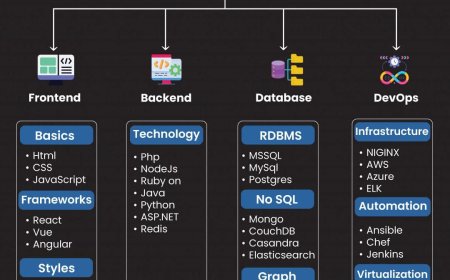How to plan a wedding in Omaha
How to Plan a Wedding in Omaha Planning a wedding in Omaha, Nebraska, offers a unique blend of Midwestern charm, affordable luxury, and vibrant cultural diversity. Known for its scenic riverfronts, historic venues, and warm community spirit, Omaha has become an increasingly popular destination for couples seeking a meaningful, memorable celebration without the overwhelming costs of larger metropol
How to Plan a Wedding in Omaha
Planning a wedding in Omaha, Nebraska, offers a unique blend of Midwestern charm, affordable luxury, and vibrant cultural diversity. Known for its scenic riverfronts, historic venues, and warm community spirit, Omaha has become an increasingly popular destination for couples seeking a meaningful, memorable celebration without the overwhelming costs of larger metropolitan hubs. Whether you’re a local resident or considering Omaha as your destination wedding location, this comprehensive guide walks you through every essential step—from setting your vision to finalizing vendor contracts—so you can create a wedding that reflects your personality, stays within budget, and leaves a lasting impression.
Unlike cities where wedding planning is dominated by high-end resorts and competitive booking windows, Omaha provides a more intimate, personalized experience. From boutique hotels in the Old Market to rustic barns in the surrounding countryside, the city’s diverse venue options cater to every style, from classic elegance to modern minimalism. This guide is designed for couples at any stage of planning—whether you’re just beginning to dream or are deep in the logistics—and is packed with actionable advice, insider tips, and real-world examples to help you navigate the process confidently.
By the end of this tutorial, you’ll understand how to prioritize your spending, select the best vendors for your needs, manage timelines effectively, and avoid common pitfalls that can derail even the most well-intentioned plans. Omaha’s wedding scene is growing rapidly, and with the right preparation, you can ensure your big day stands out—not just for its beauty, but for its seamless execution.
Step-by-Step Guide
1. Define Your Vision and Budget
The foundation of any successful wedding begins with clarity. Before you book a single vendor or visit a single venue, take time to answer two critical questions: What kind of wedding do you want, and how much can you realistically spend?
Start by envisioning your ideal day. Do you imagine a candlelit dinner under string lights in a historic ballroom? A casual backyard gathering with live bluegrass music? A vibrant cultural celebration blending traditions from both families? Write down keywords that describe your desired atmosphere—romantic, rustic, elegant, fun, intimate, grand—and share them with your partner. This shared vision will guide every subsequent decision.
Next, establish a realistic budget. According to recent data, the average wedding cost in Nebraska hovers around $22,000—significantly lower than the national average of over $30,000. However, costs vary widely depending on your choices. Allocate your budget across major categories: venue (30–40%), catering (20–25%), photography/videography (10–15%), attire (5–10%), entertainment (5–10%), flowers and decor (5–8%), and contingency (5–10%).
Use free online budgeting tools or a simple spreadsheet to track every dollar. Be honest about who is contributing financially—parents, extended family, or yourselves—and document their expectations. Some families may want to cover the reception but not the honeymoon. Clarifying this early prevents misunderstandings later.
2. Choose Your Date and Venue
Omaha’s climate plays a major role in determining your ideal wedding date. Spring (April–May) and fall (September–October) offer the most pleasant weather, with mild temperatures and vibrant foliage. Summer (June–August) is popular for outdoor events but can be hot and humid. Winter weddings (November–March) are less common but offer unique opportunities for cozy, intimate gatherings with holiday themes.
Book your venue as early as possible—especially if you’re targeting peak seasons. Popular venues like the Joslyn Art Museum, The Renaissance Omaha Hotel, or The Brickhouse in Elkhorn often book 12–18 months in advance. For a more rustic feel, consider farms like Hidden Hollow Farm or The Barn at Willow Creek, which offer scenic backdrops and all-inclusive packages.
When touring venues, ask about:
- Capacity limits and layout flexibility
- On-site catering restrictions (can you bring your own vendor?)
- Parking availability and accessibility
- Weather contingency plans for outdoor spaces
- End time restrictions and cleanup policies
Don’t overlook lesser-known gems like the Omaha Children’s Museum (for a playful, colorful vibe) or the Durham Museum (for historic grandeur). These spaces often come with lower rental fees and unique character that larger venues can’t replicate.
3. Select Your Vendors
Once your date and venue are locked in, begin assembling your vendor team. Prioritize those who align with your vision and have proven reliability in Omaha’s market.
Photography and Videography: Omaha has a strong community of talented wedding photographers. Look for professionals with portfolios that match your style—whether it’s candid documentary shots or posed editorial images. Read reviews on platforms like The Knot and WeddingWire. Ask if they offer engagement sessions, second shooters, and digital galleries. Many local photographers include a highlight reel at no extra cost.
Catering: Omaha’s culinary scene is thriving. From upscale options like The French Market to ethnic specialties at Nishiki Sushi or El Charro Mexican Grill, you have incredible diversity. If your venue allows outside caterers, consider a food truck option for a fun twist. Always schedule a tasting—this is non-negotiable. Pay attention to portion sizes, presentation, and how well the staff handles dietary needs (gluten-free, vegan, nut allergies).
Florists and Decor: Local florists like Bloom & Grow Studio and The Petal Patch specialize in seasonal, sustainable arrangements. Omaha’s growing flower farms mean you can source locally grown blooms, reducing cost and environmental impact. For decor, consider renting items like lanterns, vintage china, or wooden arches from local rental companies like Omaha Event Rentals. DIY elements can save money but only if you have the time and help—don’t overcommit.
Entertainment: Omaha has a rich music scene. Hire local bands like The Blue Notes or DJs from Omaha Sound Company who know how to read a crowd. For cultural weddings, consider hiring traditional dancers or musicians from Omaha’s Somali, Indian, or Latinx communities. Always confirm sound restrictions and setup times with your venue.
Officiant: You can choose a religious leader, a friend certified by the state, or a professional celebrant. In Nebraska, anyone ordained online through a recognized organization (like the Universal Life Church) can legally officiate. Many couples opt for a personalized ceremony led by someone who understands their story. Write your vows together and rehearse them aloud—this reduces nerves on the big day.
4. Manage Guest Logistics
Guest experience starts long before the ceremony. Begin by creating a guest list early and updating it regularly. Use digital tools like Zola or AllSeated to manage RSVPs, dietary needs, and seating charts. Aim for a balanced mix of close family, friends, and professional contacts—don’t feel pressured to invite everyone who “might be offended” if left out.
For out-of-town guests, create a simple wedding website with:
- Hotel recommendations (Omaha Marriott Downtown, The Westin, or budget-friendly Hampton Inn)
- Directions to the venue
- Local attractions (Henry Doorly Zoo, Lauritzen Gardens, the Old Market)
- Weather expectations and packing tips
Consider organizing a welcome bag with local treats—Nebraska-made chocolate, craft soda, or a map of downtown. If your wedding is on a weekend, suggest a group activity like a brewery tour (Brewery Creek or Straight Gate) or a stroll through the Riverfront Trail.
Transportation is another key consideration. Arrange shuttles from hotels to the venue, especially if alcohol will be served. Companies like Omaha Limo Service or Omaha Party Bus offer affordable group rates. For elderly or mobility-challenged guests, ensure the venue is ADA-compliant and provide clear signage.
5. Plan the Timeline and Run of Show
A detailed timeline keeps everyone on track and reduces chaos. Start with your ceremony start time and work backward. Here’s a sample timeline for a 5 p.m. wedding:
- 12:00 p.m. – Hair and makeup begins
- 2:00 p.m. – Bride and groom get dressed
- 3:30 p.m. – Ceremony setup complete (seating, aisle, altar)
- 4:30 p.m. – Guests arrive
- 5:00 p.m. – Ceremony begins
- 5:45 p.m. – Cocktail hour (outdoor space or bar area)
- 6:30 p.m. – Reception begins (entrance, first dance)
- 7:00 p.m. – Dinner served
- 8:00 p.m. – Toasts and speeches
- 8:30 p.m. – Dancing begins
- 10:00 p.m. – Cake cutting
- 10:30 p.m. – Last dance
- 11:00 p.m. – Send-off (sparklers, bubbles, or light-up signs)
- 11:30 p.m. – Vendor departure
Assign a point person—ideally a trusted friend or hired wedding coordinator—to manage this schedule. Share it with your vendors and venue staff the week before. A clear run-of-show prevents confusion and ensures your day flows smoothly.
6. Handle Legal Requirements
Nebraska requires couples to obtain a marriage license from any county clerk’s office. In Omaha, this is the Douglas County Clerk’s Office located at 1819 Farnam Street. Both parties must appear in person, bring valid photo ID, and pay a $30 fee. There is no waiting period, and the license is valid for one year from issuance.
After the ceremony, your officiant must sign the license and return it to the clerk’s office within 15 days. Once processed, you can request certified copies for legal purposes (name changes, insurance, etc.). Many couples order extra copies—usually three—to keep on file.
If you’re eloping or having a small ceremony, you can still get married in Omaha with just two witnesses present. Don’t assume you need a large group—Nebraska law only requires two people to witness the signing.
7. Prepare for the Big Day and After
In the final week, confirm all vendor arrivals and setup times. Pack an emergency kit with: safety pins, stain remover, breath mints, comfortable shoes, extra makeup, and a phone charger. Assign someone to collect gifts and cards.
On the day itself, eat a good breakfast, hydrate, and take a few deep breaths. Your vendors are professionals—they’ve done this many times. Trust them. Let go of perfection. The goal is joy, not flawless execution.
After the wedding, send thank-you notes within three months. Use handwritten cards for personal touch. Consider digital thank-yous for distant guests. Return rentals, settle final payments with vendors, and archive your photos and videos in a secure cloud folder. Many couples create a wedding album within six months while memories are fresh.
Best Practices
Planning a wedding in Omaha comes with its own set of advantages—and a few hidden challenges. Adopting these best practices ensures your experience is smooth, enjoyable, and stress-free.
Embrace Local Culture and Seasonality
Omaha’s identity is rooted in its heartland values: authenticity, hospitality, and community. Rather than trying to replicate a New York or Los Angeles wedding, lean into what makes Omaha special. Choose local vendors, incorporate regional cuisine (think steak, corn, and Nebraska-grown produce), and celebrate the seasons. A fall wedding with pumpkin accents or a spring celebration with lilacs and tulips feels more personal than generic floral arrangements.
Book Early, But Stay Flexible
While it’s wise to book venues and key vendors early, avoid locking yourself into rigid contracts. Negotiate clauses that allow for date changes or guest count reductions without penalty. Many venues in Omaha are willing to work with couples, especially during shoulder seasons (May, September).
Use a Wedding Coordinator (Even a Partial One)
You don’t need a full-service planner to avoid disaster. Consider hiring a day-of coordinator for $800–$1,500. They’ll manage timelines, vendor communication, and last-minute emergencies so you can be present in the moment. Companies like Omaha Wedding Co. and Bridal Bliss Omaha offer affordable packages tailored to mid-sized weddings.
Be Transparent About Budget Constraints
Don’t hide financial limits from your partner or family. If you’re paying for the wedding yourselves, say so. If you’re working with a $15,000 budget, prioritize what matters most: great food? Stunning photos? A memorable dance floor? Cut corners where it won’t impact the experience—like skipping a live band for a DJ or choosing a simpler cake.
Plan for Weather Contingencies
Omaha’s weather can shift rapidly. Even in summer, afternoon thunderstorms are common. If your ceremony is outdoors, have a tent, indoor backup space, or clear communication plan with guests. Inform your photographer and videographer of your backup plan—they’ll need to adjust lighting and equipment accordingly.
Respect Your Guests’ Time and Comfort
Long ceremonies, delayed meals, or poor seating arrangements can turn joy into frustration. Keep the ceremony under 30 minutes. Serve food promptly. Avoid overly long speeches. Offer non-alcoholic drink options and a quiet lounge area for guests who need a break. Small thoughtful touches make a big difference.
Document Everything
Keep a digital folder with contracts, receipts, vendor contact info, and inspiration images. Use Google Drive or Dropbox. This makes it easier to reference details later and helps if you need to file insurance claims or resolve disputes.
Practice Self-Care
Wedding planning can be emotionally draining. Schedule regular “unplugged” time with your partner. Take walks, watch a movie, or cook dinner together—away from Pinterest boards and Excel sheets. Remember: the wedding is one day. Your marriage lasts a lifetime.
Tools and Resources
Technology has revolutionized wedding planning. Here are the most reliable tools and local resources to streamline your Omaha wedding journey.
Digital Planning Tools
- Zola – All-in-one platform for websites, registries, RSVPs, and budget tracking. Integrates seamlessly with Omaha-based vendors.
- The Knot – Offers vendor directories, checklists, and real-time budget calculators. Filter vendors by location (Omaha, NE) and price range.
- WeddingWire – Read verified reviews from local couples. Use their “Compare Vendors” tool to side-by-side evaluate photographers, caterers, and florists.
- Canva – Design your invitations, programs, and signage. Use templates tailored to rustic, modern, or vintage themes.
- Google Sheets – Create a custom wedding tracker with columns for vendor, contact, cost, contract date, and status.
Local Omaha Resources
- Omaha Wedding Expo – Held twice a year at the Qwest Center, this event features over 100 local vendors. Attend to meet planners, taste food, and get exclusive discounts.
- Omaha Chamber of Commerce – Offers a curated list of approved wedding venues and event spaces. Visit their website for downloadable guides.
- Nebraska Bride Magazine – A regional publication with feature stories on Omaha weddings, vendor spotlights, and seasonal trends.
- Omaha Public Library – Free access to wedding planning books, etiquette guides, and design magazines. Ask for the “Wedding Planning” section.
- Facebook Groups – Join “Omaha Weddings & Events” or “Nebraska Bride Tribe” for real-time advice, vendor recommendations, and last-minute deals.
Financial and Legal Tools
- YNAB (You Need A Budget) – A powerful app for tracking wedding expenses against your overall financial goals.
- LegalZoom – If you’re hiring an officiant through an online ordination, use LegalZoom to ensure your paperwork is properly filed.
- Nebraska.gov – Official state portal for marriage license applications, forms, and county clerk contact details.
Local Vendor Directories
For vetted, reliable vendors, consult these curated lists:
- Omaha’s Best Wedding Vendors – Compiled by Omaha Magazine (omahamagazine.com)
- Nebraska Wedding Professionals Network – A nonprofit association of local vendors committed to ethical practices and quality service.
- Old Market Business Association – Recommends vendors who operate in the historic district, ideal for urban-chic weddings.
Real Examples
Real weddings in Omaha illustrate how creativity, planning, and local resources come together to create unforgettable experiences.
Example 1: The Rustic Garden Wedding
Emily and James, both Omaha natives, married in September at Hidden Hollow Farm, a 15-acre property just outside the city. Their budget: $18,000.
They chose a late afternoon ceremony under a wooden arch draped with local wildflowers. Their florist sourced blooms from a nearby farm, reducing cost by 30%. Catering was provided by a food truck duo serving gourmet burgers and loaded fries—guests loved the casual vibe. The DJ played a mix of classic rock and country, curated by the couple’s Spotify playlist.
They saved on attire by renting Emily’s dress through a local consignment shop and buying James’s suit off the rack. Instead of a traditional cake, they served mini pies from a local bakery. Their guests stayed at the nearby Hampton Inn, and shuttles ran every 30 minutes.
Result: A joyful, relaxed celebration that felt deeply personal. They spent $5,000 less than the Omaha average and received 27 handwritten thank-you notes.
Example 2: The Cultural Fusion Wedding
Sophia (of Mexican heritage) and Amir (from India) married in June at the Joslyn Art Museum. Their budget: $25,000.
They blended traditions: a Hindu ceremony under a mandap followed by a Catholic blessing. The reception featured Indian street food alongside tacos and tamales. Their band played sitar and jazz fusion. Guests wore colorful attire—some in saris, others in charro suits.
They hired a bilingual officiant who wove both languages into the vows. Decor included marigolds and lanterns, and the cake had layers of gulab jamun and tres leches.
They used Zola to manage RSVPs and created a bilingual wedding website. Their photographer captured the cultural moments with sensitivity and artistry. They spent $3,000 on a cultural consultant to ensure traditions were honored correctly.
Result: A celebration that honored both families and became a talking point in Omaha’s multicultural wedding community.
Example 3: The Micro-Wedding
After the pandemic, Rachel and Mark decided to elope with just 12 guests in March at Lauritzen Gardens. Their budget: $6,000.
They hired a local officiant, paid $500 for the garden permit, and brought their own picnic-style spread: charcuterie, sparkling cider, and homemade cookies. They wore casual outfits and walked barefoot on the grass. Their photographer was a friend who had studied photography.
They sent digital invitations and recorded a video message to share with those who couldn’t attend. Later, they hosted a small dinner for friends at a local brewery.
Result: A deeply meaningful, low-stress event that allowed them to focus on their commitment—not logistics. They saved $17,000 and started their marriage debt-free.
FAQs
What is the best time of year to get married in Omaha?
Spring (April–May) and fall (September–October) are ideal due to mild temperatures and beautiful natural scenery. Summer is popular but can be hot and humid, while winter offers unique opportunities for cozy, intimate weddings with holiday themes.
How far in advance should I book my Omaha wedding venue?
For peak seasons (June–August and September), book 12–18 months in advance. For off-season dates (November–March), 6–9 months is often sufficient. Popular venues like the Joslyn Art Museum and The Brickhouse fill quickly.
Can I bring my own caterer to an Omaha wedding venue?
Many venues allow outside caterers, but some require you to use in-house services. Always ask about catering policies during your tour. Venues like The Renaissance Omaha Hotel have flexible options, while historic sites like the Durham Museum may have restrictions.
How much does a wedding photographer cost in Omaha?
Prices range from $1,500 to $5,000 depending on experience, hours covered, and deliverables. Most photographers offer 6–8 hours of coverage, digital files, and a highlight reel. Look for packages that include an engagement session.
Do I need a wedding planner in Omaha?
No, but it’s highly recommended—especially if you’re juggling a full-time job or have family involved. A day-of coordinator ($800–$1,500) can handle logistics so you can relax. Full-service planners start around $4,000.
What are some affordable wedding venues in Omaha?
Consider public parks like Miller Park or the Omaha Botanical Gardens (with permit), community centers like the Elkhorn Community Center, or historic churches that rent out their halls. Many churches offer discounted rates for members.
Can I get married in Omaha if I don’t live in Nebraska?
Yes. Nebraska does not require residency. You can obtain your marriage license in any county, including Douglas County (Omaha), and get married anywhere in the state.
Are there vegan or gluten-free catering options in Omaha?
Absolutely. Omaha has a growing plant-based food scene. Caterers like The Green Table and Saffron Kitchen specialize in dietary-specific menus. Always confirm options during your tasting.
What should I do if it rains on my outdoor wedding day?
Have a backup plan in place. Many venues have indoor alternatives. Rent a tent, prepare a detailed communication plan for guests, and ensure your photographer has backup lighting equipment. Stay calm—most guests will appreciate the effort you’ve made to accommodate them.
How do I handle family drama during wedding planning?
Set boundaries early. Designate one point person (you or your partner) to make final decisions. Avoid involving too many family members in logistics. If tensions arise, consider hiring a mediator or wedding coordinator to handle difficult conversations.
Conclusion
Planning a wedding in Omaha is more than just arranging flowers and booking a venue—it’s about crafting a day that reflects who you are as a couple, rooted in the warmth and authenticity of the Midwest. From the historic streets of the Old Market to the quiet beauty of the Missouri River bluffs, Omaha offers a canvas rich with possibility. By following this guide, you’re not just avoiding mistakes—you’re building a foundation for a celebration that feels personal, intentional, and deeply meaningful.
The key to success lies in clarity: know your vision, honor your budget, trust your vendors, and prioritize what truly matters. Don’t get lost in trends or social media pressure. Omaha’s charm lies in its sincerity, and your wedding should too.
Remember, the goal isn’t perfection—it’s presence. The laughter shared over Nebraska-raised steak, the quiet glance between you and your partner as the sun sets over the river, the way your grandmother smiles when she hears the first song you danced to—these are the moments that endure.
So take a deep breath. Trust your instincts. Lean on your community. And when the time comes to say “I do,” know that you’ve done more than plan a wedding—you’ve created a beginning.





















